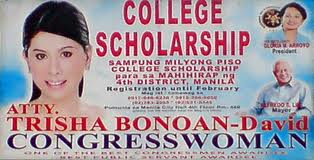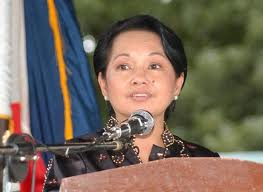Travails of democratization and political liberalization in the Philippines, Indonesia, Thailand and Myanmar[1]
Amado M. Mendoza, Jr., Ph.D.
University of the Philippines
Part I: Introduction
Notwithstanding differences in the political and social development of Southeast Asian states, it is noteworthy that a ‘politics of hatred, revenge and political obstruction’ characterizes contemporary Indonesia, Myanmar, Thailand, and the Philippines. In Indonesia, unrepentant vestiges of the Order Baru era seeks to derail the new presidency of the popular reformist Joko Widodo, who is further hobbled by his ‘allies’ in the ruling coalition. Thailand meanwhile is gripped by the seemingly intractable enmity between pro-Thaksin and anti-Thaksin forces. In the Philippines, the out-going Aquino administration is scrambling to field a friendly successor to avoid a fate it ruthlessly imposed on the preceding president. While liberalizing and on the road to democracy and internal reconciliation, the Buddhist-dominated regime in Myanmar is currently engaged in an apparent genocide against Muslim Rohingyas, now the new ‘boat people’ that even Muslim countries like Indonesia and Malaysia are unwilling to accommodate.

Philippine President Benigno Aquino III
It can be argued that democracy does not have room for a peculiar ‘politics of hatred, revenge and obstruction’ that has characterized the contemporary polities of four key Southeast Asian states: two relatively established democracies—Thailand and the Philippines; a new democracy, Indonesia; and a liberalizing polity—Myanmar—supposedly on a democratic road map. Democracy is a political order ideally based on civil dialogue and compromise and political differences are to be resolved mainly through the electoral process and other political institutions. The hallmark of democracy is thus to resolve conflicts and differences in a rule-based, peaceful or non-violent, and inclusive manner. In fact, democratic theorists argue that the quality of a democracy is largely determined by its capacity to respect the rights and legitimate interests of minorities even as it recognizes that majorities rule. While consensus is not required for a polity to qualify as a democracy, the legitimate interests of any minority as well as their human rights should be respected and must not be summarily dismissed simply because ‘they do not have numbers’. This desideratum is of great importance especially to a polity that is supposedly democratizing like Myanmar.

Myanmar opposition leader Daw Aung Suu Kyi
Incumbent governments in democracies gain their right to rule, or their legitimacy, through the electoral process that must be perceived by political actors and stakeholders to be fair and clean. Electoral legitimacy can be eroded through the life of a government if it fails to deliver a decent modicum of desired public goods to a critical majority of its constituents. If electoral legitimacy is buttressed by performance, a government that seeks re-election will most likely (ceteris paribus) succeed in obtaining a new electoral mandate.

Joko Widodo, President of Indonesia
Nonetheless, such mandates are not permanent since democracies, as rule, prescribe time-bound terms of incumbency. Alternation of incumbents is thus an institutional feature of democracies. Even if the same political party or coalition is returned to power through elections, the political leaders of government need not be same. For this reason, how the ‘outs’ are treated by those in power (or the ‘ins’) is another important indicator of a democratic polity’s quality. In the same manner, how ex-incumbents deal with a sitting government will also matter. In the main, ex-incumbents may either choose to cooperate with the incumbents even while maintaining an oppositionist stance. This stance of being the ‘loyal opposition’ is acceptable in a democracy which does not require unanimity and accepts and tolerates political differences. The qualifier ‘loyal’ is important as ex-incumbents are required to respect the electoral will of a state’s citizens. Ex-incumbents, even in if the opposition, are required to limit such opposition to legal means and avenues. They may ‘plot’, plan, organize and mobilize to regain incumbency but only within electoral and institutional parameters. Should they seek to regain incumbency through non-institutional and violent ways such as revolution, coups, and the like, they undermine and weaken their polities’ democracies and impede democratic consolidation.

Thailand’s former premier Thaksin Shinawatra
Cleavages other than electoral fortune such as religion, ethnicity, wealth and income, among others, may also create majorities and minorities. In the same manner, how these non-electoral majorities relate with or treat non-electoral minorities is another important index of a polity’s democratic bona fides. If these non-electoral minorities are discriminated against, oppressed, or persecuted systematically by the majority, the discontent can lead to political disorder and instability and could inspire armed secessionist movements.
Thus, the health of a democracy, the prospects of a democratizing polity can be measured through two variable relationships: between majorities and minorities and between the ‘ins’ and the ‘outs’.
__________________________
Presented at the 9th APISA Annual Conference, Phnom Penh, Cambodia (September 11-12, 2015). Not for citation; comments are welcome and could be sent to ammendoza@up.edu.ph or ammendozajr@gmail.com.)
















